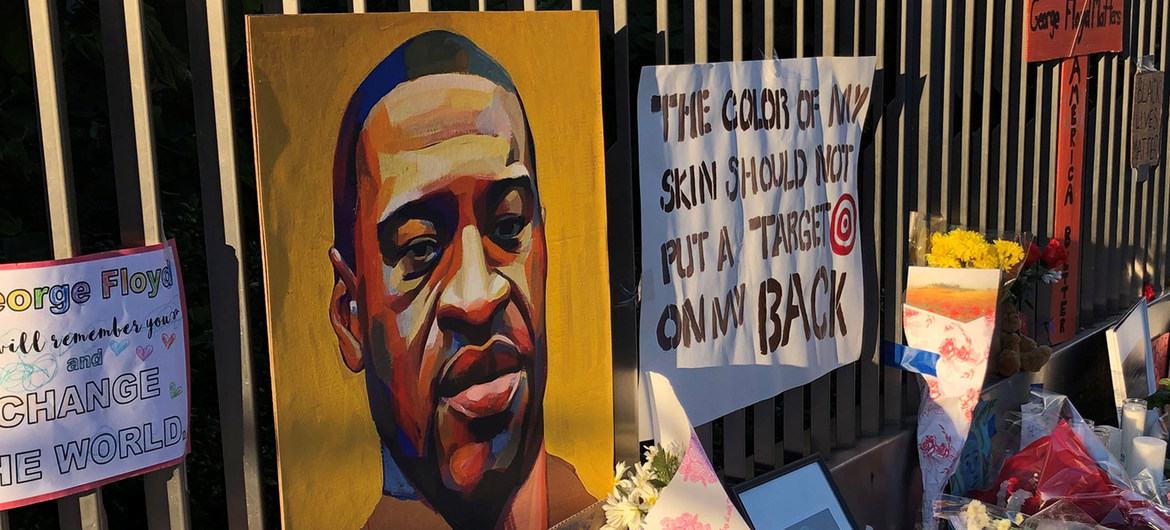
African states seek UN report on racism after Floyd killing

African nations on Friday presented a watered-down draft resolution at the top U.N. human rights body that would instruct U.N. officials and experts to report on “systemic racism” and rights violations against blacks and would single out the United States over its history of racial discrimination.
After days of grappling over language, the African Group proposed a draft at the Human Rights Council that backed away from an initial effort to launch a commission of inquiry — the council’s most intrusive form of scrutiny — in favor of a “report” to be written by the U.N. human rights chief’s office and outside experts. It says the aim is “to contribute to accountability and redress for victims” in the U.S. and beyond.
Iran and Palestine signed on as co-sponsors for the resolution that condemns “the continuing racially discriminatory and violent practices” by law enforcement against Africans and people of African descent “in particular which led to the death of George Floyd on 25 May 2020 in Minnesota,” the text said. Any state can sign on as a resolution co-sponsor at the council.
A vote on the resolution is expected later Friday or Monday.
The council on Thursday wrapped up an urgent debate on racism and police brutality that was called in the wake of Floyd’s death last month that sparked Black Lives Matter protests worldwide.
Floyd, a black man, died after a white police officer in Minneapolis pressed a knee into his neck for several minutes as Floyd pleaded for air and eventually stopped moving. His death prompted a wave of outrage.
U.S. officials have engaged in back-channel diplomacy as the text was being drawn up — but the United States is officially on the sidelines of the 47-nation council. The Trump administration pulled the U.S. out two years ago, citing the council’s alleged anti-Israel bias and acceptance of autocratic regimes with pockmarked rights records as members.






